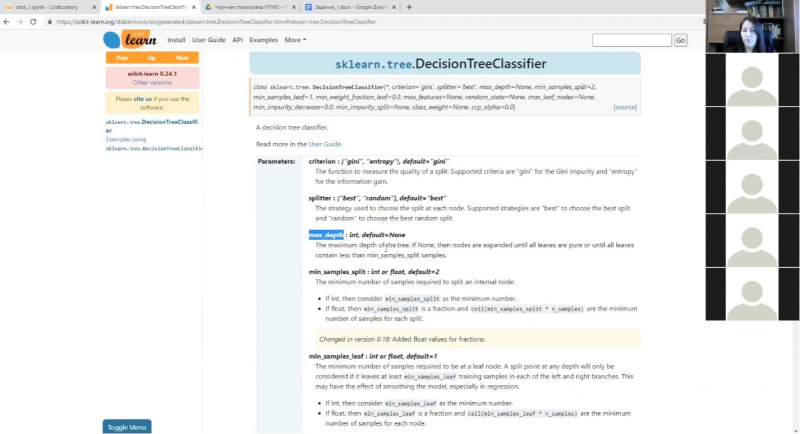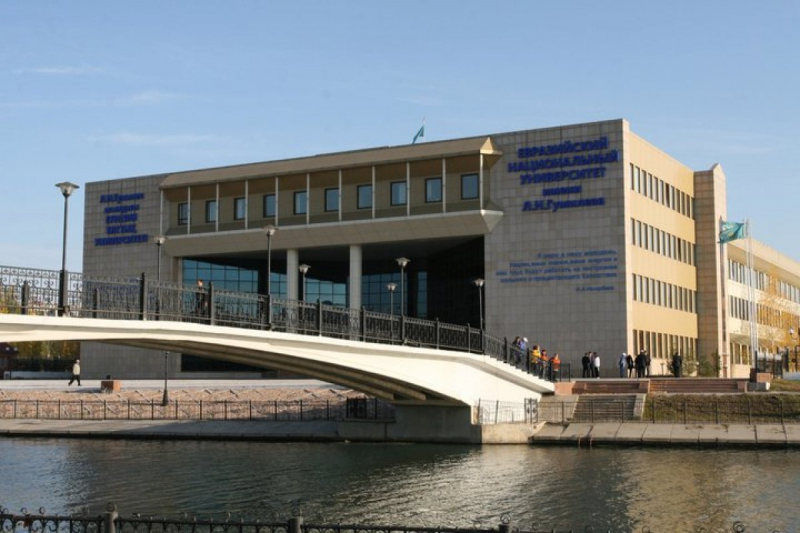At the end of the academic year, 48 second year Master’s students of the L.N. Gumilyov Eurasian National University took part in an online machine learning internship organized by ITMO University. Guided by lecturers of ITMO’s Speech Information Systems Master’s program, students went from an introductory course on machine learning to creating their own projects based on the knowledge they received.
“It was a highly intensive course, every day students learned not only the theoretical basis of machine learning but also the ways to put it into practice with various Python libraries. Each student had a personal task that they worked on in the afternoon using the knowledge and recommendations they’d received at lectures. It was an immersion course into machine learning,” says Olesya Makhnytkina, associate professor at the Information Technologies and Programming Faculty.
Students’ final projects covered a wide variety of machine learning applications, including prediction of the most widespread tree species in a forest, automated text topic detection, and face identification. The internship ended with a conference where students presented their projects and shared the experience they got while working on their personal tasks.

Online research internship in machine learning held by ITMO University for students of the L.N. Gumilyov Eurasian National University, Image courtesy of the internship participants
ITMO.NEWS reached out to the students who took part in the online internship to ask them about their experiences and the knowledge they received.
Mukhamed Ramazanov, online internship participant
I learned about the internship from lecturers at my department. I was drawn to the interesting and relevant topic, as well as ITMO’s high ranking.
Before, I had already taken part in a hackathon on a similar topic held at Nazarbayev University. There, my team made a machine learning algorithm to analyse incoming CVs. I was a system administrator of the team, so my task was to keep our server running. It was fascinating to watch my team developing the algorithm and I think that is when I first became interested in the topic.
The internship lasted ten days, each of which we started with theory: using pictures, examples, and diagrams our lecturers would explain the basics of data processing types. Then, we would divide into teams and work with given datasets using the instructions provided at the course.
My team got kddcup99, which is a database of network connections, their characteristics, and markers of whether or not each connection is a hacker attack. Thanks to the experience and wonderful guidance of our lecturer, their willingness to answer any questions on the topic, as well as a generally well-organized internship, even the least experienced students who had no prior knowledge of the topic could complete every task and then present their results.
Azamat Mukhamediya, online internship participant
I am a second-year Master’s student at the Department of Radio Engineering, Electronics, and Telecommunications of the L.N. Gumilyov Eurasian National University and I learned about the internship at my department. I was drawn in by the topic – I think machine learning is one of the most promising research and industrial fields.
Classes, divided into theoretical and practical parts, were held over Zoom. I was impressed by the high competence level of the lecturers and the opportunity to reach out to them.
I liked that we divided into teams for our practical classes, as it gave us more motivation, confidence, and engagement. Moreover, working in teams we helped each other, practicing the knowledge we got during the internship.
Aynur Otebaliyeva, online internship participant
This internship was recommended to me by the Department of Radio Engineering, Electronics, and Telecommunications at my university. Machine learning seemed to be an interesting and relevant topic because information technology is rapidly developing, which leads to an increase in the data that needs to be analyzed. And machine learning can facilitate this process.
Our classes started at 4 pm Moscow time, which is 7 pm in Nur-Sultan. I found the online format of the internship very convenient because it meant we can learn something new from wherever we found ourselves.
The greatest thing is that our lecturer, Olesya Makhnytkina, managed to find the right approach to everyone and help us overcome the challenges we were having along the course. She proved herself to be an educator with incredible knowledge – she could always answer any question we came up with and devise a solution for every situation with coding and datasets that we faced.
Thanks to the internship, I received substantial knowledge and experience. I would like to thank my department and ITMO University for this opportunity, as well as Olesya Makhnytkina personally!

